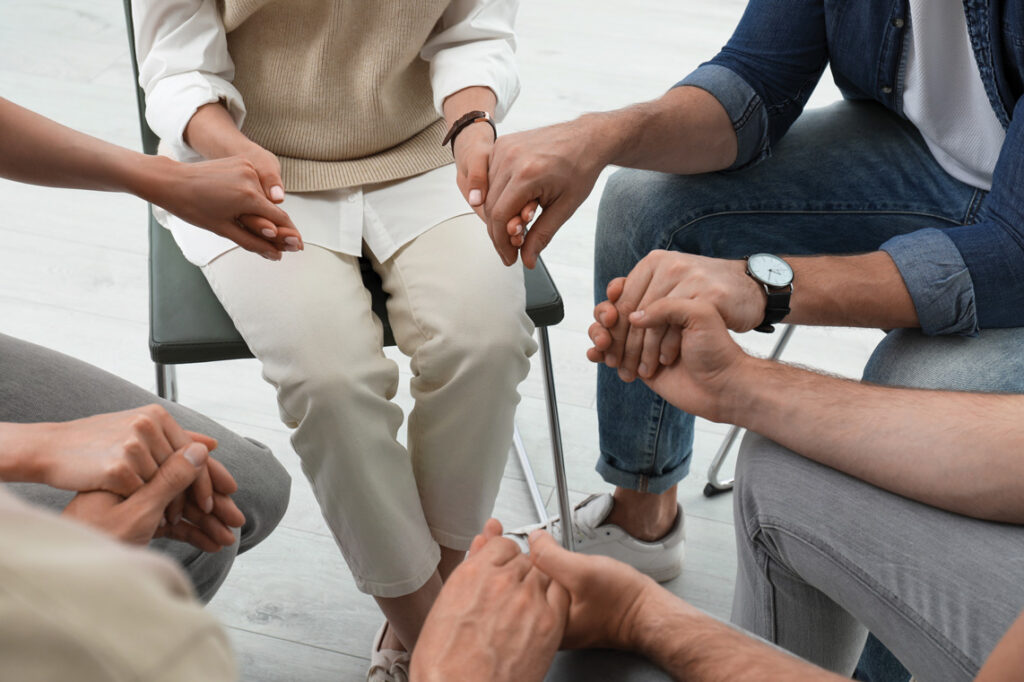
Anna X. Tripolitis
It takes a village—A phrase typically used when referring to raising children can also point to an essential part of recovery—community. Although recovery is a very personal journey, being a part of something larger than yourself gives you a sense of purpose, belonging, and inclusion. A community serves as a reminder that you are not alone and provides a lifeline when your journey feels too daunting to move through.
Addiction is an isolating disease. As addiction progresses, those struggling become increasingly desperate to hold onto the things that are destroying them at all costs. When someone isn’t willing to give up the substances to face what is happening in their lives, they begin to distance themselves from their community. However, this doesn’t mean that their community is lost forever.
When one chooses to recover, it requires opening up, being vulnerable, sharing feelings, and, perhaps most importantly, asking for help. And while the desire and drive to stay sober take personal power and internal strength, it is amplified by having a caring community to provide friendship and support throughout the recovery process. Experiencing a sense of belonging and inclusion encourages the development of trust. It builds meaningful relationships with people who can help them face newfound feelings and challenges by providing accountability and encouragement. For example, suppose someone’s friend suspects they might be struggling or isolating; that friend can talk to them about it before it becomes unmanageable. This friend can walk them through the challenges they may be facing, helping them stay on a stable path and avoid relapse.

Now, how does someone even find community? Where do they start? Establishing a community can feel very intimidating, but the good news is that community can be found anywhere; in the workplace, through family, synagogue or school. However, establishing a sober community is the best way to secure community support in early recovery. Those found in these communities are more likely to provide specific support that is valuable in the early days of recovery. One way is to find community meetings like Alcoholics Anonymous or SMART Recovery, which people can usually locate online. People have also found sober support online via social media and websites like meetup.com. Although it may feel intimidating, establishing a sober specific community early in recovery could be the difference between life and death.
However, expanding their support network to communities outside of recovery and sobriety can also be beneficial as people move through their recovery journey. Expanding a support network can mean volunteering, participating in a book club, or joining a fitness or wellness community like a gym or yoga studio. By creating a community with interests other than sobriety, a person in recovery creates consistent and healthy habits. These habits encourage regular social interaction and positive coping skills, which are valuable aspects of recovery.
While finding a community can feel like a daunting task, it has been an essential part of human nature throughout history. Unfortunately, those struggling with substance use disorder often ignore their need for social connection to hold onto their addiction when in active addiction. But suppose they return to their need for connection and embark on their recovery journey. In that case, their future can quickly become a more positive one. By having a community, those who struggle with addiction decrease their isolation and, as a result, reduce the risk of depression, resentment, and relapse.
If you or someone you love are looking for a way to find community support and need help getting started, The SAFE Foundation can offer ways to help. In addition to individualized counseling and various support groups, counselors can provide other ideas to create a community so that each individual makes a community that’s helpful for them. If you are struggling, reach out and ask for help. You don’t have to do this alone; nobody should have to. For help, call 1-718-GET-SAFE, 24/7 for assistance.
Anna Tripolitis, originally from St. Louis Missouri, is a passionate member of the recovery community. After getting an undergraduate degree in psychology, she shifted her focus to using her graphic design, art, and social media skills to help aid causes she cares about. Being able to work with The SAFE Foundation and utilize social media to educate and empower the community has been fulfilling work and further deepens Anna’s passion for mental health and recovery awareness.



